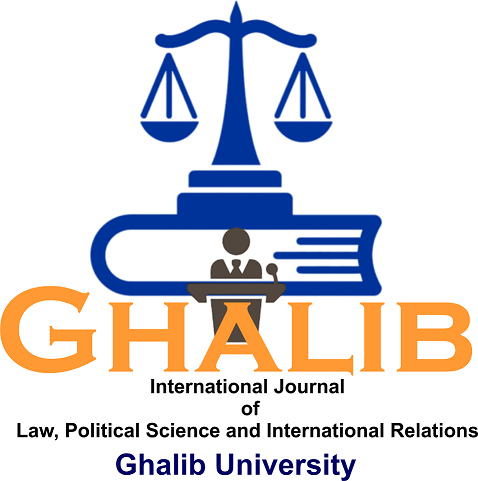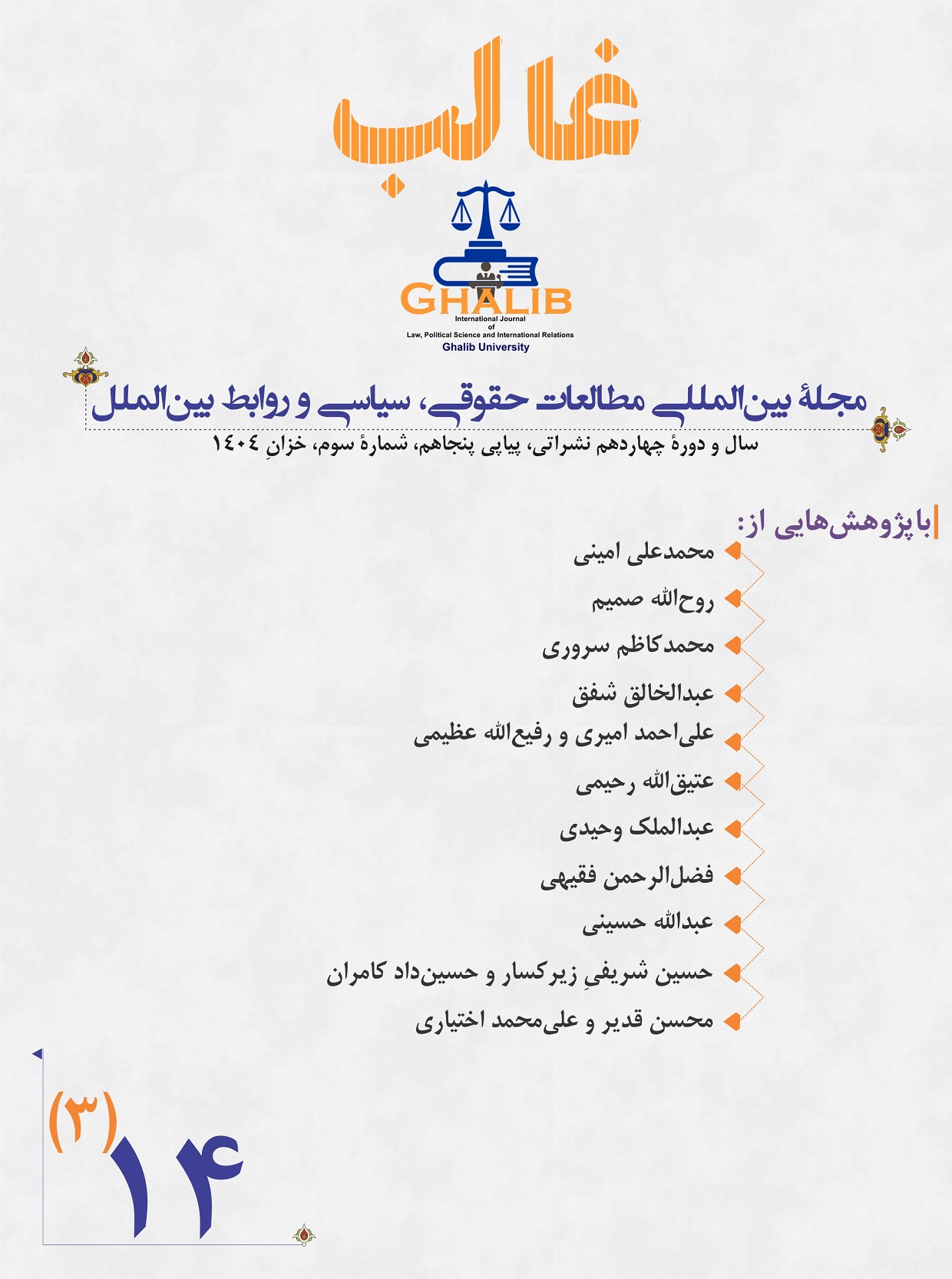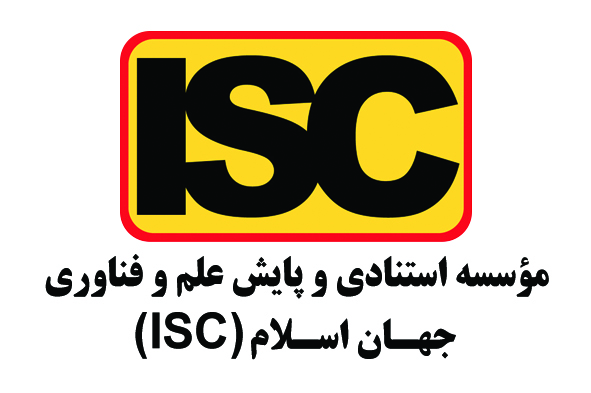مقایسۀ کارشناسی با شهادت و امکانسنجی تعارض آنها با یکدیگر در نظامِ حقوقیِ افغانستان
DOI:
https://doi.org/10.58342/ghalibqj.V.14.I.3.4واژهگانِ کلیدی:
ادلۀ اثبات دعوا، اهل خبره، تعارض ادله، تقدم و تأخر ادلۀ اثبات، حقوق مدنی افغانستان، شهادت، کارشناسیچکیده
کارشناسی و شهادت از ادلۀ اصلی اثبات دعوا در نظام حقوقی افغانستان محسوب میشوند. قانون اصول محاکمات مدنی، کارشناسی را تحت عنوان «اهل خبره» و متشکل از اشخاص متخصص و مجرّب معرفی میکند و شهادت را به اِخبار به حق در مجلس قضاء با لفظ «أشهدُ» تعریف مینماید. پرسش محوری این است که آیا میان این دو دلیل اثباتی در دعاوی مدنی و تجارتی امکان تعارض وجود دارد یا خیر. تحلیل جایگاه و تعارض احتمالی کارشناسی و شهادت، نقش مؤثری در ارتقای کیفیت رسیدهگی قضایی، تضمین عدالت قضایی و ایجاد وحدت رویه دارد و میتواند ابهامات حقوقی موجود در فرایند اثبات دعوا را کاهش دهد. هدف پژوهش، مقایسۀ تحلیلیِ کارشناسی و شهادت و امکانسنجی تعارض میان آنها بوده است. پرسش اصلی این است که در چهارچوب قانون اصول محاکمات مدنی، آیا تعارض کارشناسی و شهادت قابلتصور و تحقق است. پژوهش حاضر کاربردی و به روش توصیفی ـ تحلیلی انجام شده است. دادهها از طریق مطالعات کتابخانهیی و تحلیل مواد قانونی گردآوری شده و محدودۀ تحقیق بر دعاوی مدنی و تجارتی متمرکز است. یافتههای تحقیق نشان میدهد که: تحقق تعارض میان ادلۀ اثبات دعوا مستلزم وجود چهار شرط است: تعدد دلیل، ناسازگاری مدلولها، وحدت موضوع و قدرت اثباتی همزمان؛ همچنان نتایج نشان میدهد که تعارض در برخی فروض محقَق نمیشود و در موارد تحقق، غالب حقوقدانان شهادت را مقدم میدانند؛ مگر آنکه کارشناسی برای قاضی ایجاد علم نماید که در این فرض کارشناسی بر شهادت ترجیح مییابد.
سرچشمهها/ منابع
Abidin, Muhammad Amin ibn Umar. (1992). Radd al-Muhtar ala al-Durr al-Mukhtar (Vol. 5, 2nd ed.). Beirut: Dar al-Fikr. [In Arabic]
Akhund Khorasani, Mohammad Kazem ibn Hossein. (1985). Kifayat al-Usul (Vol. 2). Tehran: n.p. [In Persian]
Al-Mu’min al-Muhami, Hussein. (1951). Theory of Evidence: Testimony (Vol. 2). n.p.: n.p. [In Arabic]
Al-Sawafi, Salem bin Humaid bin Muhammad. (2009). Testimony Between Sharia and Law and the Defects Affecting Its Admissibility. Cairo: Al-Ghandour Center. [In Arabic]
Al-Siwasi, Kamal al-Din Muhammad. (n.d.). Fath al-Qadir (Vol. 7). n.p.: Dar al-Fikr. [In Arabic]
Amrawani, Rahman. (2008). "Conflict Between Expertise and Testimony in Civil Matters." Journal of Adjudication 69(12): 12–60. https://elmnet.ir/doc/194672-81651 [In Persian]
Amrawani, Rahman. (2011). Conflict of Evidence in Legal Matters (1st ed.). Tehran: Fekrsazan. [In Persian]
Ansari, Masoud & Taheri, Mohammad Ali. (2007). Encyclopedia of Private Law (Vol. 4, 2nd ed.). Tehran: Mehrab-e Fekr. [In Persian]
Ansari, Morteza. (n.d.). Faraed al-Usul (Vol. 4, 9th ed.). Qom: Majma' al-Fikr al-Islami. [In Persian]
Beyhaqi, Ahmad ibn Ali. (1987). Taj al-Masadir (Vol. 2). Tehran: Hadi Alamzadeh. [In Persian]
Dehkhoda, Ali Akbar. (1994). Dehkhoda Dictionary (Vol. 4, 1st ed.). Tehran: University of Tehran Press. [In Persian]
Ghafi, Hossein & Shariati Farani, Saeed. (2016). Applied Principles of Jurisprudence (Vol. 2, 4th ed.). Qom: SAMT & Research Institute of Seminary and University. [In Persian]
Haeri, Abdulkarim. (n.d.). Dorar al-Fawaed (Vol. 2, with annotations by Mohammad Ali Araki). Qom: Mohammad Mo'men Qomi. [In Persian]
Hasanzadeh, Mahdi. (2002). "Validity of Expert Opinion." Andishehaye Hoquqi 2(7): 158–167. https://jolt.ut.ac.ir/article_11433.html [In Persian]
Hasanzadeh, Mahdi. (2005). "The Relationship Between Expertise and Testimony in Fiqh and Law." Journal of Islamic Law 4(1): 80–90. https://hoquq.iict.ac.ir/article_22697.html [In Persian]
Hasanzadeh, Mahdi. (2010). "The Jurisprudential Foundations of the Validity of Expert Opinion." Journal of Law Quarterly 40(2): 134–145. https://jlq.ut.ac.ir/article_21608.html [In Persian]
Islamic Information and Documentation Center. (2013). Lexicon of Principles of Jurisprudence (4th ed.). Qom: Research Institute of Islamic Sciences and Culture. [In Persian]
Jahromi, Mohammad Javad Nazem al-Baka. (2014). "An Analysis of the Nature of Expertise and Its Effects in Iranian Law with a View to English Law." M.A. Thesis, Faculty of Literature and Foreign Languages, University of Kashan, Kashan, Iran. [In Persian]
Katouzian, Nasser. (2016). Introductory Course on Civil Law: Legal Events and Civil Liability (18th ed.). Tehran: Sherkat Sahami Enteshar. [In Persian]
Keshvari, Najmeh. (2012). "The Status of Expertise (Khabir) in Fiqh and Positive Law." M.A. Thesis, Faculty of Fiqh and Islamic Law, Shahid Motahari University, Tehran, Iran. [In Persian]
Khallaf, Abdulwahhab. (1992). Ilm Usul al-Fiqh (Vol. 1). Damascus: n.p. [In Arabic]
Madani, Seyed Jalal al-Din. (2000). Evidence in Legal Claims (5th ed.). Tehran: Paydar. [In Persian]
Moein, Mohammad. (2008). Persian Dictionary (Vol. 1, 4th ed.). Tehran: Amir Kabir. [In Persian]
Mohammadi, Abolhasan. (2014). Foundations of Islamic Legal Reasoning (53rd ed.). Tehran: University of Tehran Press. [In Persian]
Mohaqqeq Damad, Seyed Mostafa. (2004). Discussions on Principles of Jurisprudence (Vol. 3, 3rd ed.). Tehran: Center for the Publication of Islamic Sciences. [In Persian]
Mozaffar, Mohammad Reza. (n.d.). Usul al-Fiqh (Vol. 3, 5th ed.). Qom: Mu’assasat al-Nashr al-Islami. [In Arabic]
Nazari, Sorayya. (2014). "Jurisprudential-Legal Foundations of Expert Opinion in Crimes Punishable by Hudud and Qisas." M.A. Thesis, Faculty of Islamic Sciences and Research, Imam Khomeini International University, Qazvin, Iran. [In Persian]
Noruzi Firooz, Rahmatullah. (2013). Expertise in Iranian Law (1st ed.). Tehran: Mizan. [In Persian]
Rahi, Ebrahim. (2011). "The Status of Expertise in Criminal Law and Imamiyya Jurisprudence." M.A. Thesis, Institute of Law and Islamic Studies, Qom, Iran. [In Persian]
Safaei, Seyed Hossein. (2004). "Evidentiary Value of Testimony in Private Law." (Trans. Habibollah Rahimi). Quarterly Journal of Public Law Research 6(13): 152–165. https://qjpl.atu.ac.ir/article_2948.html [In Persian]
Shafaq, Abdul Khaliq. (2014). "Evidentiary Value of Testimony and Its Potential Conflicts in Afghan Law." Journal of New Jurisprudence and Law 20(10): 1–19. https://www.jaml.ir/article_712393.html [In Persian]
Shafaq, Abdul Khaliq. (2023). "Conflict of Legal Presumptions in Afghan Law: Feasibility and Solutions." 7th International Conference on Religious Studies, Humanities, and Bioethics in the Islamic World, Iran, 1–16. https://civilica.com/doc/1712897/ [In Persian]
Shah-Heidaripour, Mohammad Ali. (1997). "Expert Testimony as a Means of Proof." M.A. Thesis, Shahid Beheshti University, Tehran, Iran. [In Persian]
Shams, Abdollah. (2016). Civil Procedure Code (Vol. 3, 29th ed.). Tehran: Darak. [In Persian]
Shawkani, Muhammad ibn Ali. (2000/1421 AH). Irshad al-Fuhul ila Tahqiq al-Haqq min Ilm al-Usul (Vol. 1). Beirut: Muhammad Subhi ibn Hasan Hallaq. [In Arabic]
Tabatabai Haeri, Seyed Ali ibn Muhammad. (n.d.). Riyad al-Masael fi Tahqiq al-Ahkam bi al-Dalail (Vol. 2, 1st ed.). Qom: Ahl al-Bayt Institute. [In Arabic]
Tehrani Haeri, Mohammad Hossein ibn Abd al-Rahim. (1984). Al-Fusul al-Ghurawiyya fi al-Usul al-Fiqhiyya (Vol. 1). Qom: n.p. [In Arabic]
Zeraat, Abbas & Motaghi Ardakani, Omid. (2015). "Conflict of Evidence in Criminal Proceedings: Consequences and Solutions." Semi-Annual Journal of Islamic Jurisprudence and Law Studies 7(13): 66–75. https://feqh.semnan.ac.ir/article_1940.html [In Persian]
Zuhayli, Wahbah. (1997/1418 AH). Usul al-Fiqh al-Islami (Vol. 2). Damascus: n.p. [In Arabic]
چاپ شده
ارجاع به مقاله
شماره
نوع مقاله
مجوز
حق نشر 2025 عبدالخالق شفق

این پروژه تحت مجوز بین المللی Creative Commons Attribution 4.0 می باشد.













